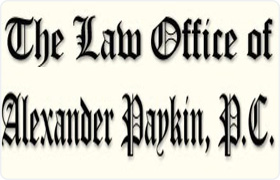 East Rockaway Timeshare Lawyers, New York
East Rockaway Timeshare Lawyers, New York
Sponsored Law Firm
-
 x
x

Click For More Info:
-
The Law Office of Alexander Paykin, P.C.
350 5Th Ave Fl 59 New York, NY 10118» view mapReal Estate Reliable. Dependable. Accessible.
Whether you are buying, selling, renting, or refinancing your house, our experienced legal team will strongly advocate for you at each and every step of the process.
800-747-9261
Not enough matches for East Rockaway Timeshare lawyer.
Below are all East Rockaway Real Estate lawyers.
Sponsored Lawyers
1-10 of 31 matches
Divorce & Family Law, Criminal, Real Estate, Wills & Probate, Bankruptcy & Debt
The Law Offices of Schlissel DeCorpo is composed of attorneys and paralegals who are caring, dedicated professionals contributing experience and expertise in diverse areas of the law. Our goal is to provide our clients with high quality and cost-effective legal services. We treat each client, small or large, with dignity and render the professional, efficient, and courteous service they deserve. There are certain events in everyone’s life that are recognized as the most traumatic, most stressful…A divorce, the death of a loved one, a serious financial difficulty, being arrested, or buying or selling a home. These are the times when it is necessary to enlist the services of a lawyer. Our law firm seeks to make the legal processes a bit less confusing and less stressful. Elliot S. Schlissel, Esq. and his associates understand the emotional upheaval that can accompany major changes in a person’s life. We are sensitive to the needs of our clients. “We are primarily a firm of lawyers representing individuals.” Many of our clients are working people. We try to be flexible to accommodate the schedules of our clients. We treat every client, whether their case is a large one or a small one, with dignity and render prompt, efficient, and courteous service. Our Lynbrook law office handles Matrimonial and Family Law, Wills, Trusts, Estates, Criminal Law, Traffic Matters, Bankruptcy, Real Estate Closings, and General Practice Matters. Elliot S. Schlissel has been practicing law for more than 40 years. He attended Hofstra University School of Law and SUNY at Buffalo Law School. He received a scholarship to study international protection of human rights at the Council of Europe in Strasbourg, France. He is currently a member of the New York State, Nassau County, Queens County, and Suffolk County Bar Associations, and served two terms as the President of the Commercial Lawyers Conference of New York, a regional bar association.
(more)Lawsuit & Dispute, Litigation, Business, Contract, Real Estate
Jack Mevorach is a practicing lawyer in the State of New York. He received his J.D. from Hofstra University School of Law in 1987. He currently works for his privately owned firm of Jack Mevorach, Esq.
(more)Lawsuit & Dispute, Motor Vehicle, Accident & Injury, Car Accident, Landlord-Tenant
Christopher M. Lynch has been a practicing attorney since January of 2011. In that time he has zealously advocated for his clients and has guided them through the often confusing and complex world of the law, including obtaining substantial settlements for personal injury clients, taking the steps to evict problem tenants, guiding first-time home buyers and sellers from contract through closing, reducing the property tax burden on tax grievance clients, obtaining refunds for clients whose property taxes were improperly raised, vacating judgments entered against clients' properties, and preventing a client's home from being lost to foreclosure.
(more)


 Alexander Paykin New York, NY
Alexander Paykin New York, NY AboutThe Law Office of Alexander Paykin, P.C.
AboutThe Law Office of Alexander Paykin, P.C. Practice AreasSpecializations
Practice AreasSpecializations



